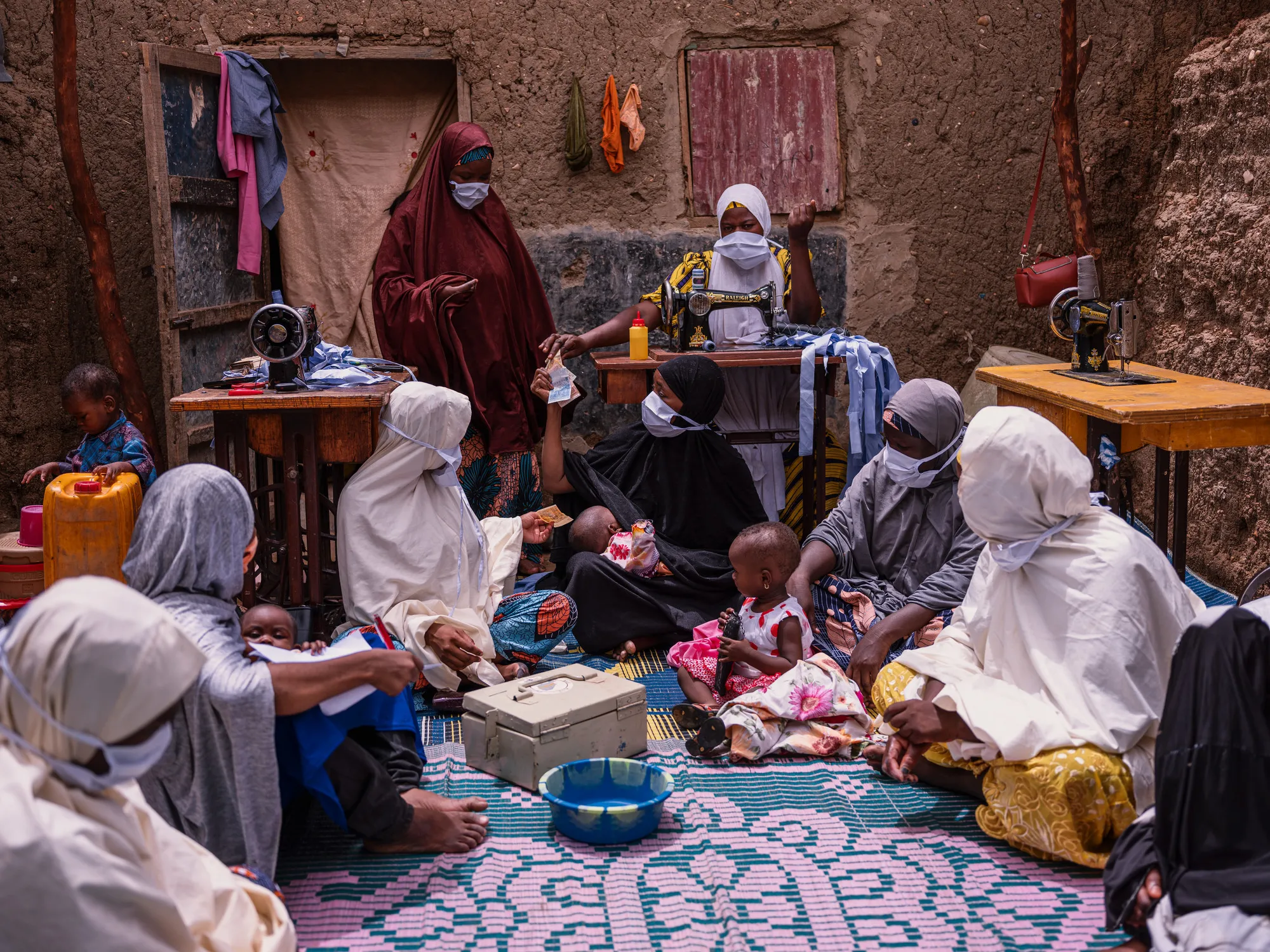October 29, 2020, Washington D.C. – Senator Cory Booker (D-NJ) and Senator Patty Murray (D-WA) introduced a Congressional resolution, “Recognizing the Disproportionate Impact of COVID-19 on Women and Girls Globally,” bring much needed attention to the particular ways the pandemic is threatening women’s economic, social and health security across the globe. CARE thanks the senators for this step in working to build a more equitable recovery from the pandemic and calls on Congress to support its passage as we grapple with the devastating consequences of this global pandemic.
“COVID-19 has laid bare and worsened some of the existing inequalities around the world. Women and girls are facing disproportionate economic insecurity and an uncertain future. To build forward towards a more equitable world it is essential to recognize how the pandemic affects women and girls and put them at the center of our global responses,” said CARE USA CEO and President Michelle Nunn. “Women need to be included in the solutions and their voices must be heard. We thank Senator Booker and Senator Murray for pushing this resolution forward as it brings critical attention to the particular ways in which the pandemic is affecting women’s health, safety, and rights in the long term.”
The Resolution draws attention to some of the most devastating impacts on women and girls:
- Due to disruption in programs and services as a result of COVID-19, millions more women and girls will experience complications or death in childbirth, unintended pregnancies, newborn deaths, and unsafe abortions. It is estimated that 47 million women lost access to contraceptives.
- Lockdowns and the insecurity caused by the pandemic has given rise to dramatic increases in gender-based violence, including millions more cases of domestic violence, child marriages, and female genital mutilation. This “shadow pandemic” has worsened beyond the already devastating rates of GBV pre-pandemic. According to UNFPA, there were an estimated 31 million more gender-based violence cases between April and October of 2020.
- Women’s economic security is in peril worldwide – they disproportionately face job loss, income insecurity, and heightened risk of exploitation as a result. Women comprise 92 percent of those in the informal economy, which often lacks the social and legal protections to keep them secure and help them meet their needs during this crisis.
- Crisis will uniquely affect women in agriculture, who provide more than 43 percent of the agricultural labor around the world yet whose ability to harvest, sell, and buy food and other products necessary for their food security and nutrition will worsen due to travel restrictions related to the crisis, ongoing discrimination in access to agricultural inputs and markets, and wage gaps and disproportionate unpaid care burdens for female farmers.
- The COVID–19 crisis will place particular burdens on women and girls in humanitarian emergencies given challenges including overcrowded conditions, restrictions on travel and movement, already strained health, hygiene and sanitation infrastructure, food shortages and malnutrition, already heightened exposure to gender-based violence, systematic and targeted attacks on health infrastructure and aid workers by parties to conflicts, politicization of aid and service delivery, and restricted humanitarian access, all of which exacerbates the spread and effect of infectious diseases.
“COVID-19 has exposed and exacerbated the existing structural inequities facing women and girls globally, from increases in gender-based violence to worsening gender based disparities in lack of access to healthcare and economic security,” said Senator Booker. “To develop a comprehensive international response to COVID-19 requires that we acknowledge, address, and work to end the existing gender-based inequities and disparities that disproportionately harm the safety, health and economic security of women here at home and across the world. I thank CARE for their extraordinary work in shining a light on the experiences of women and girls across the world, and for working relentlessly to not only prevent backsliding in the rights women have gained, but to keep forward momentum on women’s empowerment and gender equality.”
“We know from experience that when crisis hits, women often bear the brunt of the burden—and it’s already painfully clear that COVID-19 is no exception. This pandemic has been particularly hard on women across the world as the health and reproductive care they need has become harder to get, economic security has become harder to attain, and gender-based violence has become more prevalent,” Senator Murray said. “It’s important to families and communities across the world that we don’t lose sight of this critical fact, and that we support women and girls directly as they face the fallout from this crisis in so many ways.”
Congress is out of session until November 9, 2020, but CARE urges congressional members to take action on this resolution upon their return.
Media Contact:
Rachel Kent, CARE Senior Press Officer, Rachel.Kent@care.org, 1.516.270.8911

